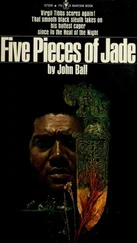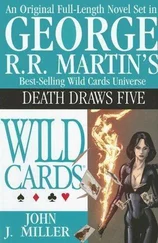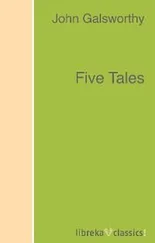John Bingham - Five Roundabouts to Heaven
Здесь есть возможность читать онлайн «John Bingham - Five Roundabouts to Heaven» весь текст электронной книги совершенно бесплатно (целиком полную версию без сокращений). В некоторых случаях можно слушать аудио, скачать через торрент в формате fb2 и присутствует краткое содержание. Жанр: Криминальный детектив, на английском языке. Описание произведения, (предисловие) а так же отзывы посетителей доступны на портале библиотеки ЛибКат.
- Название:Five Roundabouts to Heaven
- Автор:
- Жанр:
- Год:неизвестен
- ISBN:нет данных
- Рейтинг книги:4 / 5. Голосов: 1
-
Избранное:Добавить в избранное
- Отзывы:
-
Ваша оценка:
- 80
- 1
- 2
- 3
- 4
- 5
Five Roundabouts to Heaven: краткое содержание, описание и аннотация
Предлагаем к чтению аннотацию, описание, краткое содержание или предисловие (зависит от того, что написал сам автор книги «Five Roundabouts to Heaven»). Если вы не нашли необходимую информацию о книге — напишите в комментариях, мы постараемся отыскать её.
Five Roundabouts to Heaven — читать онлайн бесплатно полную книгу (весь текст) целиком
Ниже представлен текст книги, разбитый по страницам. Система сохранения места последней прочитанной страницы, позволяет с удобством читать онлайн бесплатно книгу «Five Roundabouts to Heaven», без необходимости каждый раз заново искать на чём Вы остановились. Поставьте закладку, и сможете в любой момент перейти на страницу, на которой закончили чтение.
Интервал:
Закладка:
He reckoned there were about four teaspoonsful left in the bottle, and as far as he could recall, having once or twice mixed it for her, she took two teaspoonsful at a time.
Altrapeine was tasteless. That is what the medical book had said. So was the medicine Beatrice took. But was altrapeine really tasteless, or was it a comparative term?
He remembered the dog Brutus. The dog had taken it without trouble. But in that case the powder had been embedded into the meat, and when it came to meat the dog wolfed each piece almost without biting it. It was hardly a fair test.
Supposing he put double the necessary quantity into the bottle, since there were two doses of powder left, and supposing he did not mix the two powders evenly, so that Beatrice took a dose of almost pure altrapeine, would she notice it?
It would be too late, of course, because she always gulped her medicine down, but if she noticed a strange taste-and she had an extraordinarily delicate palate-and then began to lose consciousness, she would be afraid.
She would not suspect him, but she would be afraid. She would think, in the seconds before she died, that the chemist had made a mistake: one read about such mistakes. She would die in fear.
He remembered her fear when she had had her slight attack of palpitations. Her first worried little remark, early one morning: “I feel funny, Barty. I wish I hadn’t taken those aspirins.” And a few minutes later, the piteous little cry of real alarm: “Barty, I do feel queer; my heart’s beating terribly quickly, and I can’t seem to get my breath.”
He had calmed her down, only to hear her call out again a few moments later. She had rushed to the window and flung it open, and gulped down the air, and turned and clung to him with terror in her eyes, and cried; “Barty, Barty!” and then again, “Barty, Barty!”
Then, while he telephoned the doctor, she had gone and put her head under a cold-water tap, and had kept moving about the flat, always with fear in her eyes, crying, “I think I’m better if I keep moving! I seem to be better if I keep moving!”
It had been nothing serious, of course. She had simply knocked off aspirins and taken to phenacetin tablets instead, and had never had an attack since. Her heart was as sound as a bell.
But he remembered how he thought, in agony of mind: Not this way, dear God, not by death. Oh, God, don’t give me my freedom through her death!
It had changed since then. Now he not only desired her death: he was plotting it. Now it was freedom by death, yes, but not freedom by death and fear. Not that. He would wait a week, a month, a year, rather than that.
He lifted the teapot and looked at Beatrice.
“Care for another cup?” he asked.
“Yes, please. Not quite so much sugar this time, please.”
Beatrice answered without looking up from her paper. She was lying back smoking and reading. Soon, as Bartels knew, she would put down her paper and start talking about her plans for the day.
“Been having indigestion again?” he asked. “I see you’ve been taking your stuff.”
“Oh, nothing much. I’ve had one or two twinges in the night lately. That’s all.”
“How often do you take the stuff?”
Beatrice had a habit of becoming so deeply immersed in her reading that she was unable to hear questions put to her. So it was now. She did not answer.
“How often do you take it?” said Bartels again, more loudly. “Twice a day? Three times?”
Beatrice leant over and extinguished her cigarette in the tray. “Oh, no. I’m just taking it before I go to bed for a few days. I’ll have to get some more.”
“I’ll get it for you,” said Bartels.
“I’ve got enough to last tonight and tomorrow.”
“I’ll get you some today,” said Bartels dully.
“Oh, don’t bother, Barty. There’s no hurry.”
“I’ll get it for you today,” said Bartels again. “I’ve got to go to the chemist anyway to get some blades.”
He heard the postman’s knock, and went out and fetched the letters. There was nothing of interest, except a letter from a cousin of Beatrice’s saying her sister had had a baby. It was strange that they had never had a child, Beatrice and himself. The doctors could find no reason for it. He wondered if a child would have made any difference, and thought it probably would have done. Strange, then, that a hidden physical defect, some small maladjustment, accidental, invisible, inherited, could make so much difference to three people: could cause a man, indeed, to risk the hangman’s noose.
He had the information he wished now. She was taking the powder once a day, before going to bed; and she was taking about two teaspoonsful, as he had surmised.
“I think I’ll have my bath,” he said, and went out.
He passed the wardrobe where his suits were hanging. It was in the breast pocket of the oldest one, the one he rarely wore, that the bottle of altrapeine was secreted. It was quite safe there. Beatrice hardly ever went to his wardrobe, and if she did, while he was having his bath, she would have no cause to search the pockets of that old and dilapidated suit.
Bartels shaved and bathed, slowly, taking his time, and thinking out his next move.
He was still quite calm. Later, his nerves were to cause him trouble. But not yet. He was still enjoying the relief which comes from taking a decision after a period of mental struggle.
During the day, he would have to buy a bottle of Beatrice’s medicine.
This, when he returned and found Beatrice no longer alive, he would substitute for the one which had contained the poison. He paused in the act of cleaning his teeth: strange how he baulked at the word “dead.” “Beatrice dead.”
It was hard to imagine that forceful and well-organized woman dead. All life stilled, all plans cut short. It seemed utterly impossible.
He glanced at his wristwatch on the shelf above the handbasin. It was nearly 8 a.m. She usually went to bed at 11 p.m.
So in fifteen hours Beatrice would be dead. There was no doubt about it now. Even if he wished to do so, he could not call a halt now because he felt irresistibly caught in a moving band of events from which he knew himself to be no longer psychologically able to escape. He had set the machinery going. He couldn’t stop it now. It was stronger than him.
He continued to make detailed mental plans.
He would have to empty all the powder out of the new bottle except for about half a teaspoonful; no more and no less, for in case of investigation, he must guard against the possibility that the “daily help” might comment, however innocent her remarks, upon the fact that a comparatively new bottle of stomach powder stood by Beatrice’s bedside. He did not want the attention of the police, or Dr Anderson, to be drawn unduly to that bottle, though it was possible that they might wish to analyse the remains. That would be all right, of course. He did not wish them to search the dustbin, however, for the old one, and he did not wish to have to explain where it was, when they failed to find it.
It was on small points like that, thought Bartels, combing his hair in the bathroom, that a chap could come badly unstuck.
Like all murderers who plan their crimes, he was supremely confident. He couldn’t face a dead moth, he was afraid of being locked in a room. He even felt suffocated when a train in which he was travelling passed through a long, dark tunnel, unless the compartment was lighted. But he could pit his wits, gamble his life, risk his reputation in the eyes of posterity, against the most efficient police force in the world. Odd, really.
Now he began to consider the question of disposing of the bottle which had contained the poison. Almost at once a number of difficulties occurred to him.
Читать дальшеИнтервал:
Закладка:
Похожие книги на «Five Roundabouts to Heaven»
Представляем Вашему вниманию похожие книги на «Five Roundabouts to Heaven» списком для выбора. Мы отобрали схожую по названию и смыслу литературу в надежде предоставить читателям больше вариантов отыскать новые, интересные, ещё непрочитанные произведения.
Обсуждение, отзывы о книге «Five Roundabouts to Heaven» и просто собственные мнения читателей. Оставьте ваши комментарии, напишите, что Вы думаете о произведении, его смысле или главных героях. Укажите что конкретно понравилось, а что нет, и почему Вы так считаете.












